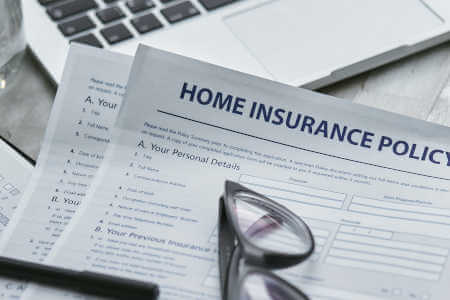Closing Costs Checklist
The following checklist will help you understand all the costs related to your closing. These costs include those that are both mortgage-related costs and government-imposed costs
The closing costs vary, depending on the type of loan you choose, and property type, but could be 2% to 6% of the loan amount. These costs generally include:
Appraisal fees
Attorney fees
Credit report fees
Title search fees
Property inspection fees
Seller versus Buyer Closing Costs

Who pays which closing costs varies in all localities and is open for negotiation between tne buyer and the seller. It is possible to have a sales agreement in which either the buyer or seller pays all the closing costs. Or, to lower your costs, you may have the seller agree to pay just certain fees. For example, you could negotiate that the seller pay for the title search service, the county and state recording fees and tax, and the closing agent's document preparation fees. Whatever closing costs agreement the buyer and the seller reach must be specified in the sales contract.
The success of negotiations depends on such factors as how eager the seller is to sell and you are to buy, the quality of the home and how long it has been on the market, and whether other potential buyers are interested.
Mortgage Lender Fees

Depending on your situation, the following costs for getting a mortgage must be paid at or by the loan closing. These costs cover items that were part of the loan application process.
Loan Origination Fee
The loan origination fee covers the administrative costs of processing the loan. It may be expressed as a percentage of the loan (for example, 1 percent of the mortgage amount).
Loan Discount Points
Loan discount points or sometimes simply referred to as "Points", are the dollar amount paid to a lender for making a loan. Each point equals 1 percent of the mortgage amount. For example, if you take out a $200,000 loan, one point equals $2,000. The more points you are wiling and able to pay at closing, the lower your interest rate should be.
Appraisal Fee
The appraisal fee pays for the appraisal, which the lender uses to determine whether the value of the property is sufficient to secure the loan should you default on the loan. This is usually paid by you when you apply for the mortgage and may appear on the settlement form as "POC", or "paid outside closing.
Credit Report Fee
The credit report fee covers the cost of the credit report, which the lender uses to determine your creditworthiness. You probably also paid this fee when you applied for the mortgage, so it may appear on the settlement form as POC.
Assumption Fee
An assumption fee is charged if you take over the payments on the seller's existing loan. The fee may range from several hundred dollars to 1 percent of the loan amount.
Prepaid Interest
Interest is the fee you are charged for borrowing money from your lender. You will probably have to pay the interest on the mortgage from the date of settlement to the beginning of the period covered by mortgage payment. For example, lets assume you settle on February 10. Your first monthly payment begins to accrue on March 1 and will be payable at the beginning of April. At closing you may be required to prepay the interest for the period from February 10 through the end of February. This means that if you settle later in the month, your closing costs will be less than if you settle early in the month.
Escrow Accounts
Escrow accounts (or reserves) will be required if your lender will be paying your homeowner's insurance and property taxes. Your lender sets up the escrow account by adding the cost of the insurance policy and taxes to your monthly mortgage payments. That portion of your payments is kept in reserve until the bills are due. Each year, the bills will be sent directly to your lender, who will make the payment for you.
Government-imposed Closing Costs
Most state and local governments impose property taxes, recording fees, and transfer taxes, which are outlined below:
Property Taxes
Property taxes for the real estate you own must be paid annually to the prorated between the buyer and seller. This process is referred to as homeowners' association or condominium fees and unpaid water or utility bills. Your closing agent will split the taxes so that you take responsibility for them at closing. If the seller already has paid taxes beyond that date, you reimburse the seller. Or, if taxes for the current settlement payment. Your lender may include property taxes in your monthly mortgage payments and puf them in an escrow account for you.
Recording Fees and Transfer Taxes
Recording fees and transfer taxes are charged by most states for recording the purchase documents and transferring ownership of the property. Your closing agent will usually calculate these costs as a percentage of the sales price. In some localities it is customary that the seller pay one fee and the buyer pay another.
Closing costs
The closing costs vary, depending on the type of loan you choose, and property type, but could be 2% to 6% of the loan amount. These costs generally include appraisal fees, attorney fees, credit report fees, title search fees, and property inspection fees.


